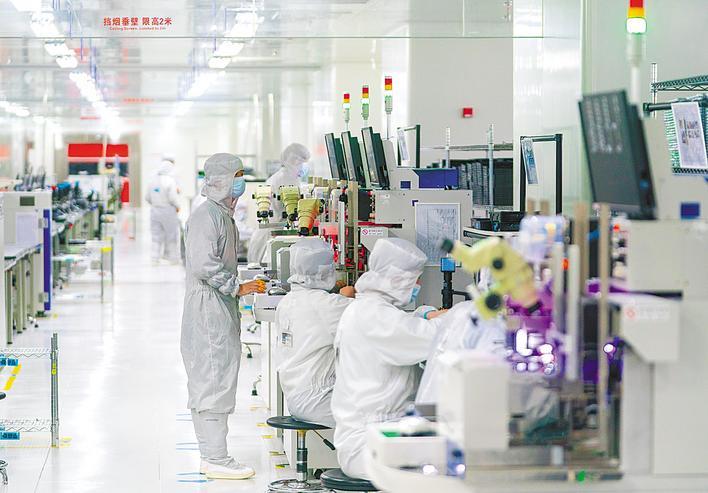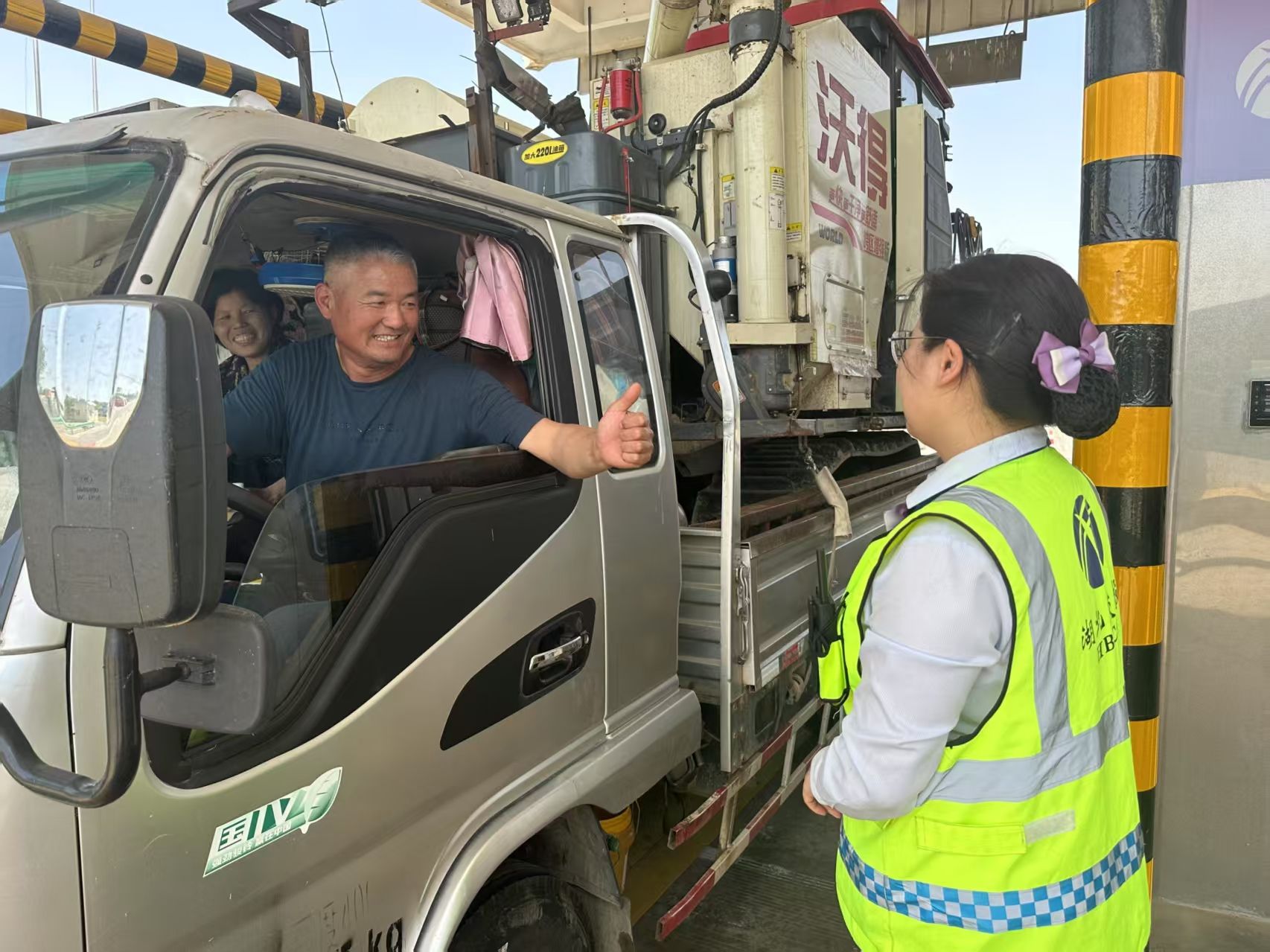China's sacrifices should always be remembered
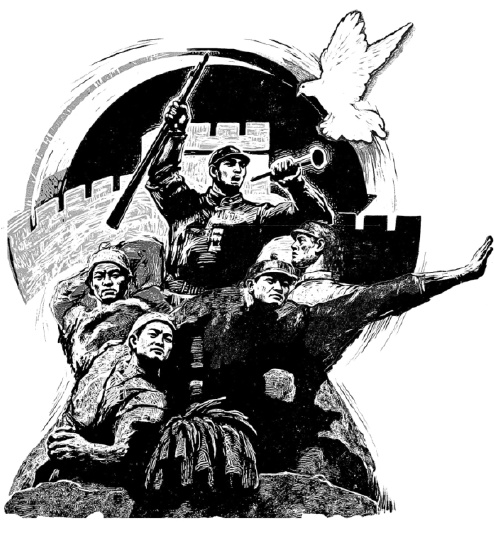
MA XUEJING/CHINA DAILY。
Editor's note:。With global tensions rising and regional conflicts showing no signs of ending, it has become more urgent than ever to understand the root causes of war. Wang Jianlang, president of the Chinese Society for the History of the War of Resistance Against Japanese Aggression, reflects on some overlooked aspects of World War II — its real starting point, China's under-recognized contribution, and why the principle of "indivisible peace" remains vital today. Wang also warns against populism and historical amnesia in an in-depth conversation with China Daily's Liu Jianna for Dialogues with Thinkers, China Daily's high-end interview program. Following are excerpts from the interview:。
Q1: How should the world reflect on World War II amid the ongoing regional conflicts in order to prevent new wars?
A: We are witnessing a turbulent era of global change. While we may not yet be on the brink of a third world war, the current global environment is arguably the most chaotic in the 80 years since the end of World War II. International rules and norms are being repeatedly violated, increasing the risks of a global war.。
In such times, it is crucial to learn from the experiences of World War II. The prelude to that war showed how incremental aggression, if unchecked, could spiral into a global catastrophe. The world failed to respond decisively to early acts of aggression, which ultimately emboldened the Axis powers. Japan's occupation of Northeast China, Germany's expansion into Austria and Czechoslovakia were all warning signs.。
Today, our ability to prevent another global war hinges on our willingness to uphold international norms, support multilateral institutions, and collectively and decisively respond to emerging threats. History warns us that inaction and appeasement are often enablers of war.。
Q2: Why should we reconsider the starting point of World War II?
A: Traditionally, World War II is considered to have begun in 1939 with Germany's invasion of Poland. This Euro-centric perspective has dominated mainstream history. However, decades of research suggest the war had two major origins: Europe and East Asia.。
Japan's invasion of Northeast China in 1931 — commonly known as the "Sept 18 Incident" — was a prelude to World War II. But the world at that time failed to recognize its global implications, which led to a long and brutal campaign that eventually evolved into a full-scale war in 1937.。
If we consider the Axis powers collectively as the initiators of World War II, then Japan's invasion of Northeast China in 1931 marked the opening act of the conflict, while its full-scale invasion of China in 1937 should be recognized as the true starting point of the war. Recognizing this broader timeline will not diminish European experiences but rather complete the full global picture of the war, because World War II was not a single-front conflict but a worldwide fight against fascism, shaped by multiple triggers and theaters of violence.。
Q3: What key lessons from World War II should we always remember?
A: One of the most important lessons is the danger of appeasement and inaction in the face of early aggression. Before 1937, as Japan escalated its aggression into a full-scale invasion of China, the international community largely limited its response to expressions of sympathy, offering little in the way of concrete support. The lack of action to curb Japan's ambitions failed to deter Japan's expansion, which continued to intensify in the following years.。
Similarly, in Europe, the 1938 Munich Agreement — where Great Britain and France conceded Czechoslovak territory to Nazi Germany — demonstrated how granting repeated concessions could backfire. Germany and Japan both interpreted these diplomatic compromises as a green light to intensify their aggressive campaigns.。
Another crucial lesson is the concept of "peace is indivisible". In the 1930s, major powers such as the United States viewed regional wars in Asia as irrelevant to their own national security. It wasn't until the industrial Western powers were attacked and a global alliance was formed that the importance of world peace became undeniable.。
This idea is part of the foundation of international relations. The threat to peace in one region must be seen as a threat to global peace and stability, which warrants collective and timely action. Only by adhering to this principle can we prevent regional conflicts from turning into global wars.。
Q4: How did China contribute strategically to the global anti-fascist war?
A: China's role in the global fight against fascism has often been undervalued, partly because it was not an industrial power like the US, Great Britain or the Soviet Union. Nonetheless, China's strategic contributions were immense.。
Despite the vast disparity in economic and military capabilities — China's GDP was less than a quarter and steel production less than 1 percent of Japan — China resisted Japanese aggression for 14 years, which includes eight years of full-scale war. It was a prolonged and costly resistance.。
China tied down more than 1 million Japanese troops on the Asian mainland, significantly easing pressure on Allied forces in the Pacific. Nearly 700,000 Japanese troops were engaged in Northeast China, preventing Japan from launching attacks on the Soviet Union's eastern front. This protected the Soviet Union in the east while it engaged in a brutal conflict with Nazi Germany in the west.。
Moreover, Chinese forces fought in foreign theaters such as Myanmar, contributing to the broader Allied victory. These sacrifices and strategic contributions earned China recognition as one of the "Big Four" Allied powers and a permanent seat in the UN Security Council. China's endurance and resistance were pivotal to the global outcome of the war.。
Q5: Why should the 1937 Lugou Bridge Incident be seen as a starting point of World War II?
A: While 1931 marked the beginning of a regional war of resistance against Japanese aggression, the Lugou Bridge Incident on July 7, 1937, signaled the onset of full-scale war between China and Japan.。
If we define World War II as a global war between expansionist powers and international resistance, then the 1937 invasion stands as a starting point of the war. Recognizing this helps correct the imbalance in Western narratives on the war, which often sideline the main Eastern battlefield's importance.。
By incorporating this perspective, we acknowledge that the war was not West-centric but part of a broader global breakdown of peace. It allows for a more nuanced understanding of the interconnectedness of global conflicts, and ensures that the experiences of Asian nations are not overlooked in the history of World War II.。
Q6: How should we see the roles of the Communist Party of China and Kuomintang during the Chinese People's War of Resistance Against Japanese Aggression?
A: Both the CPC and the KMT played vital roles in resisting Japanese aggression, operating on two major fronts: the enemy's rear and the main battlefield. Their contributions were complementary, even if political tensions between them persisted.。
When honoring wartime sacrifices, we should focus on the fact that all Chinese forces, regardless of their political affiliation, fought to defend the nation. Both the CPC and KMT soldiers are part of our shared memory of resistance and deserve equal recognition for their bravery. It's also important to resist overly politicized historical narratives that pit one side against the other. The reality is that their coordinated efforts helped sustain the national resistance despite extreme hardship. The legacy of these joint efforts should be a symbol of unity rather than division.。
Q7: Why must we remain vigilant against populist rhetoric and political manipulation?
A: World War II was not only a military conflict but also a political and psychological conflict. Both Nazi Germany and imperial Japan used mass propaganda to stir ultra-nationalism and justify their expansionist policies.。
Even today, in the age of information, populist leaders can distort facts and manipulate public sentiment. When emotions override reason, democratic systems can become vulnerable, and history shows how dangerous that can be.。
Preventing the resurgence of authoritarianism requires constant vigilance against those who use ultra-nationalism, fear and populism to polarize societies. The example of Hitler reminds us of how unchecked emotional mobilization can disable societal checks and balances, and lead to disaster.。
In this era dominated by social media echo chambers and algorithm-driven content, the danger is even greater. Populism can thrive in disinformation-prone environments, making it all the more essential to promote critical thinking and independent journalism.。
Q8: How did World War II lay the groundwork for today's global governance system?
A: After the end of World War II, the international community sought to prevent a recurrence of another global war by establishing a robust system of collective security, most notably through the United Nations. The concept of peace is indivisible became institutionalized; as a result any regional conflict can now be discussed at the UN Security Council.。
This legacy is not just symbolic. It reflects the hard-earned lesson that diplomacy and dialogue should take precedence over unilateral military actions. Today, maintaining the postwar world order is essential to maintain global stability.。
The idea that all conflicts — no matter how localized — can escalate and affect global peace shaped institutions like the UN and principles like the Responsibility to Protect. These frameworks are under strain today but remain vital.。
Recommitting to the spirit of postwar cooperation requires reforming and strengthening global institutions to reflect 21st-century realities, without losing sight of the lessons that led to their formation.。
Q9: Why has China's World War II narrative often been underrepresented globally?
A: Several factors have contributed to this narrative. First, during World War II, China was not an industrial power and, unlike its Western allies, lacked global influence. As a result, its contributions, though strategic and prolonged, did not receive equal attention in postwar narratives.。
Second, the dominant Euro-American focus in World War II historiography has often overlooked the significance of the main Eastern battlefield. But recent decades have seen a growing recognition of China's central role in resisting fascism.。
And third, ideological tensions during the Cold War further distorted historical representation. China's role was either politicized or sidelined depending on the prevailing geopolitical narrative. Only in recent decades has there been a scholarly shift toward a more balanced global account of World War II. Reframing historical narratives to include multiple perspectives is not about rewriting history; it's about completing it.。
Q10: Why does redefining the World War II narrative matter in today's geopolitical landscape?
A: Historical narratives shape contemporary perceptions and policies. Recognizing China's role in World War II reinforces its legitimacy as a founding member of the international order. It also highlights the importance of non-Western contributions to global peace.。
At a time when multilateralism is under strain and nationalism is on the rise, a more inclusive World War II narrative reminds us of the shared sacrifices that led to the formation of the current global system, and why it must be protected.。
Moreover, as new conflicts occur and historical accounts are often invoked to achieve political ends, a clearer understanding of how wars began — and how they were won — can guide better decision-making. Accurate, inclusive history is a cornerstone of peace and cooperation.。
To build a bright global future, we require a collective memory which should recognize that World War II was not only fought and won in Europe, but across continents, with shared sacrifices and the common hope for peace.。
Wang Jianlang, president of the Chinese Society for the History of the War of Resistance Against Japanese Aggression. The views don't necessarily represent those of China Daily.。
If you have a specific expertise, or would like to share your thought about our stories, then send us your writings at opinionchinadaily.com.cn, and commentchinadaily.com.cn.。
(责任编辑:知识)
-
 新华社北京4月10日电。 题:多种极点气候来袭!这些防备需留意。新华社记者刘诗平。多种极点气候将从11日开端影响我国南北。中央气候台10日发布气候预告,估计11日至13日,华北将呈现前史同期稀有继续性
...[详细]
新华社北京4月10日电。 题:多种极点气候来袭!这些防备需留意。新华社记者刘诗平。多种极点气候将从11日开端影响我国南北。中央气候台10日发布气候预告,估计11日至13日,华北将呈现前史同期稀有继续性
...[详细]
-
 合长4C61线路是合肥电力运送首要通道之一,这条重要线路因一位工程车驾驭员的违规操作产生损坏,对区域供电形成影响。近来,肥东县开展和变革委员会依法对该驾驭员予以行政处分,这是本年合肥首例触及电网外破毛
...[详细]
合长4C61线路是合肥电力运送首要通道之一,这条重要线路因一位工程车驾驭员的违规操作产生损坏,对区域供电形成影响。近来,肥东县开展和变革委员会依法对该驾驭员予以行政处分,这是本年合肥首例触及电网外破毛
...[详细]
-
多学科协作精准治疗 七旬结肠癌肝搬运患者完成“病理完全缓解”
 荆楚网湖北日报网)讯记者 林琳 通讯员 邹亚琴 实习生 万妍)武汉一位七旬白叟不幸被确诊为“结肠癌肝搬运”,一家人失望之际,武汉大学人民医院湖北省人民医院)4大学科精准协作,协助白叟承受精准转化医治后
...[详细]
荆楚网湖北日报网)讯记者 林琳 通讯员 邹亚琴 实习生 万妍)武汉一位七旬白叟不幸被确诊为“结肠癌肝搬运”,一家人失望之际,武汉大学人民医院湖北省人民医院)4大学科精准协作,协助白叟承受精准转化医治后
...[详细]
-
 阅历了时间短的居家日子后,小朋友们总算能够在幼儿园里相见啦!为协助家长们了解复课后相关防疫方针及防备措施,促进家乡之间有用的交流交流。2022年11月15日,合肥市长江路幼儿园教育集团天成分园结合疫情
...[详细]
阅历了时间短的居家日子后,小朋友们总算能够在幼儿园里相见啦!为协助家长们了解复课后相关防疫方针及防备措施,促进家乡之间有用的交流交流。2022年11月15日,合肥市长江路幼儿园教育集团天成分园结合疫情
...[详细]
-
 湖北日报全媒记者 王欣 通讯员 易荣波。11岁失怙,14岁失母,家住孝感市大悟县的吴超困难拉扯两个弟弟长大,并将三弟吴刚托举进了大学。但好景不长,2024年,吴刚因尿毒症生命垂危。大哥吴超毅然决议捐肾
...[详细]
湖北日报全媒记者 王欣 通讯员 易荣波。11岁失怙,14岁失母,家住孝感市大悟县的吴超困难拉扯两个弟弟长大,并将三弟吴刚托举进了大学。但好景不长,2024年,吴刚因尿毒症生命垂危。大哥吴超毅然决议捐肾
...[详细]
-
《巡按审子》孝感首演满意闭幕:楚剧演绎“法不容情”,千年忠孝叩问今世人心
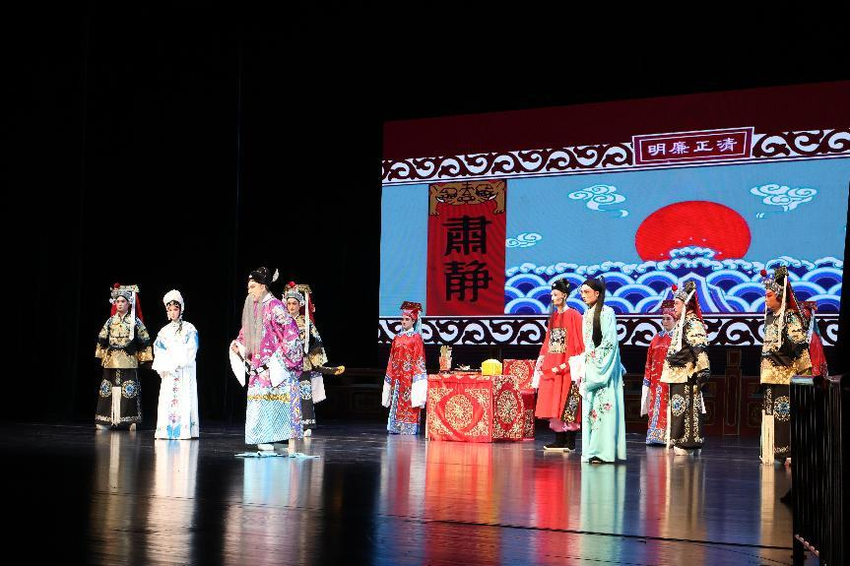 荆楚网湖北日报网)讯通讯员黄程)近来,“2025湖北省传统文明艺术展演”在孝感大剧院隆重启幕,由湖北省试验楚剧团带来的传统楚剧《巡按审子》作为开幕扮演,为市民们奉献了一场精彩绝伦的文明盛宴。荆楚沃野,
...[详细]
荆楚网湖北日报网)讯通讯员黄程)近来,“2025湖北省传统文明艺术展演”在孝感大剧院隆重启幕,由湖北省试验楚剧团带来的传统楚剧《巡按审子》作为开幕扮演,为市民们奉献了一场精彩绝伦的文明盛宴。荆楚沃野,
...[详细]
-
 5月14日,全国游水项目操练作业会议在深圳举行,会议宣告了崔登荣为国家游水队新周期的总教练。崔登荣表明:“是上海培育了我,是咱们给予我鼓舞、支撑、协助,感谢咱们,任务艰巨,负重致远,持续尽力。”。为做
...[详细]
5月14日,全国游水项目操练作业会议在深圳举行,会议宣告了崔登荣为国家游水队新周期的总教练。崔登荣表明:“是上海培育了我,是咱们给予我鼓舞、支撑、协助,感谢咱们,任务艰巨,负重致远,持续尽力。”。为做
...[详细]
-
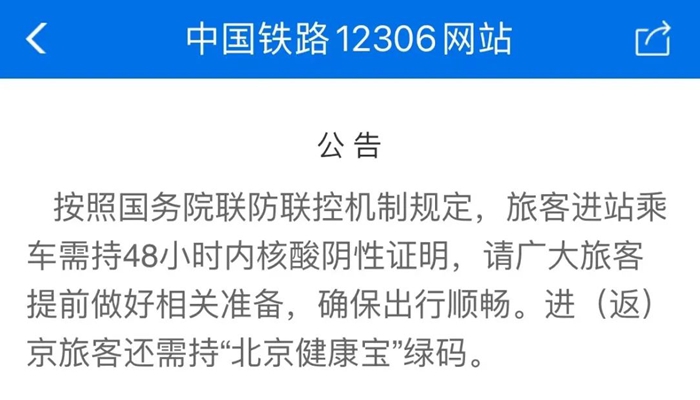 依照国务院联防联控机制规则,旅客进站搭车需持48小时内核酸阴性证明,请广阔旅客提早做好相关预备,保证出行顺利。进返)京旅客还需持“北京健康宝”绿码。关于站内换乘旅客,不重复查验核酸检测证明。检测陈述纸
...[详细]
依照国务院联防联控机制规则,旅客进站搭车需持48小时内核酸阴性证明,请广阔旅客提早做好相关预备,保证出行顺利。进返)京旅客还需持“北京健康宝”绿码。关于站内换乘旅客,不重复查验核酸检测证明。检测陈述纸
...[详细]
-
 针对美方称将对我国征收的关税提高到125%,外交部发言人林剑4月10日在例行记者会上说,美方出于一己之私,将关税作为施行极限施压、谋取私利的兵器,严峻侵略各国合理权益,严峻违背世界贸易组织规矩,严峻危
...[详细]
针对美方称将对我国征收的关税提高到125%,外交部发言人林剑4月10日在例行记者会上说,美方出于一己之私,将关税作为施行极限施压、谋取私利的兵器,严峻侵略各国合理权益,严峻违背世界贸易组织规矩,严峻危
...[详细]
-
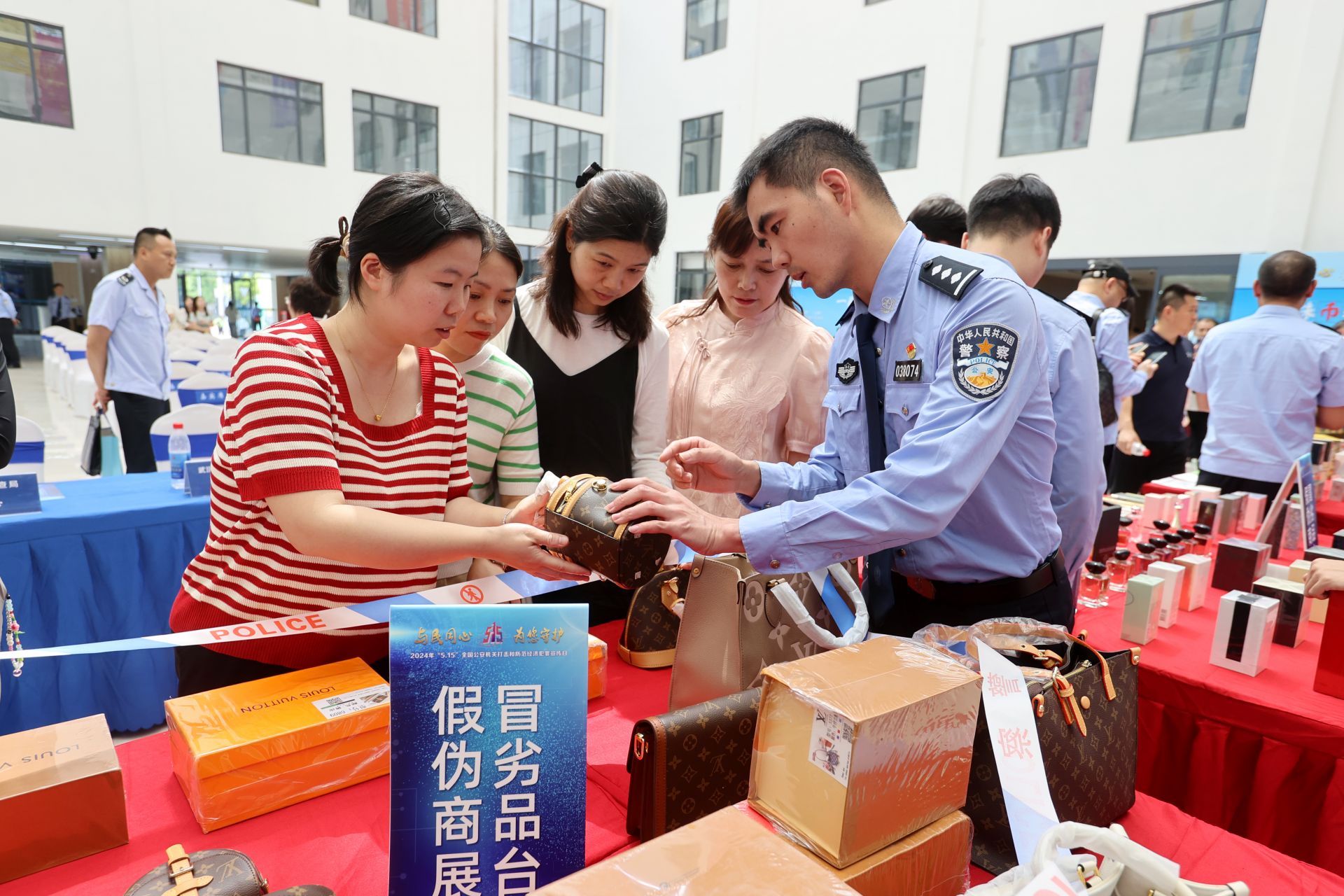 荆楚网湖北日报网)讯记者 白云 通讯员 王威 向雯)严打涉企违法,为企业挽损 6500 余万元、获评全国经侦五星联勤中心、5 名民警当选公安部经侦人才库和冲击经济违法“国家队”……5月14日,在“5·
...[详细]
荆楚网湖北日报网)讯记者 白云 通讯员 王威 向雯)严打涉企违法,为企业挽损 6500 余万元、获评全国经侦五星联勤中心、5 名民警当选公安部经侦人才库和冲击经济违法“国家队”……5月14日,在“5·
...[详细]

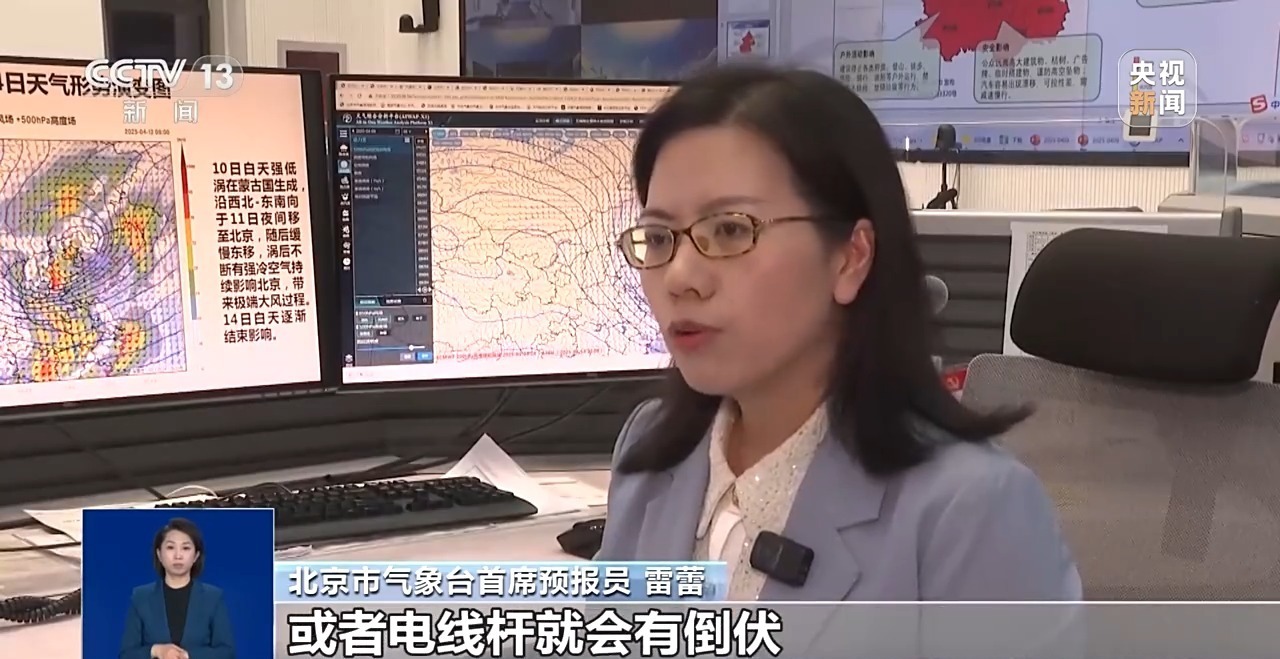 北京发布近十年首个劲风橙色预警!劲风是怎么构成的?怎么应对?
北京发布近十年首个劲风橙色预警!劲风是怎么构成的?怎么应对? “不说人话”才干过审?毕业论文检查是否矫枉过正
“不说人话”才干过审?毕业论文检查是否矫枉过正 降价40%!荔枝很多上市!还会再降
降价40%!荔枝很多上市!还会再降 湖北交投襄阳运营公司:“微改造、微立异”助力路域环境全面提高
湖北交投襄阳运营公司:“微改造、微立异”助力路域环境全面提高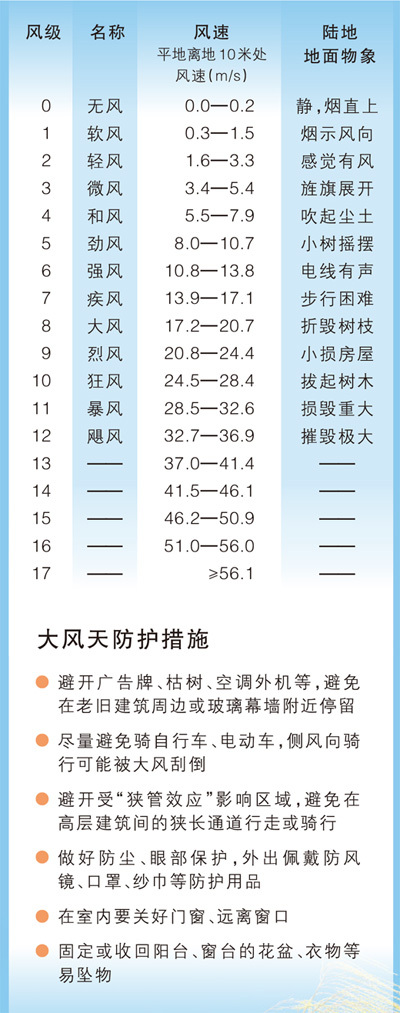 中央气象台估计,华北将刮稀有劲风,局地阵风可达十二至十三级 这场风为何那么大?
中央气象台估计,华北将刮稀有劲风,局地阵风可达十二至十三级 这场风为何那么大?